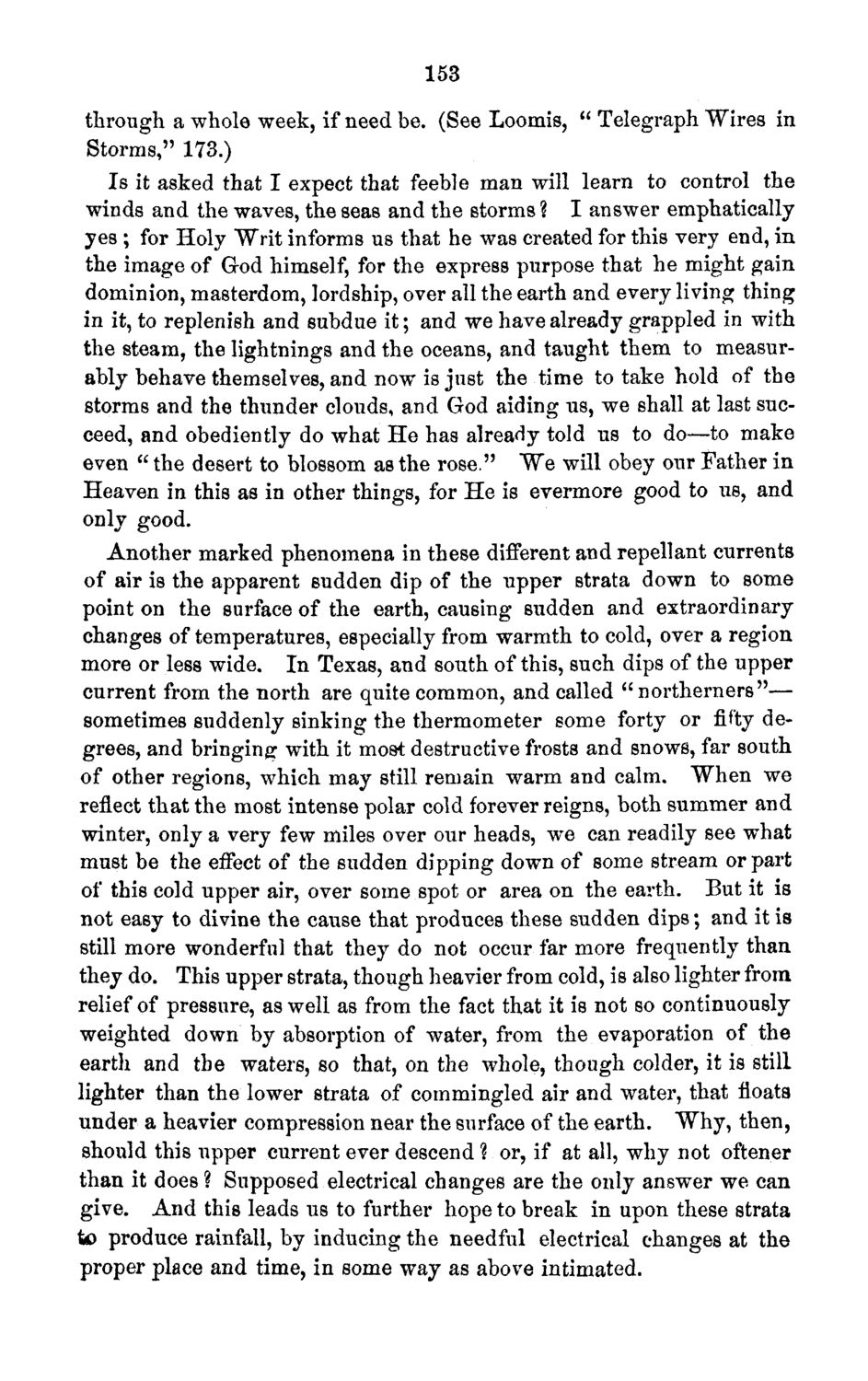| |
| |
Caption: Board of Trustees Minutes - 1871
This is a reduced-resolution page image for fast online browsing.

EXTRACTED TEXT FROM PAGE:
153 through a whole week, if need be. (See Loomis, " Telegraph Wires in Storms," 173.) Is it asked that I expect that feeble man will learn to control the winds and the waves, the seas and the storms ? I answer emphatically yes ; for Holy Writ informs us that he was created for this very end, in the image of God himself, for the express purpose that he might gain dominion, masterdom, lordship, over all the earth and every living thing in it, to replenish and subdue it; and we have already grappled in with the steam, the lightnings and the oceans, and taught them to measurably behave themselves, and now is just the time to take hold of the storms and the thunder clouds, and God aiding us, we shall at last succeed, and obediently do what He has already told us to do—to make even " the desert to blossom as the rose." W e will obey our Father in Heaven in this as in other things, for H e is evermore good to us, and only good. Another marked phenomena in these different and repellant currents of air is the apparent sudden dip of the upper strata down to some point on the surface of the earth, causing sudden and extraordinary changes of temperatures, especially from warmth to cold, over a region more or less wide. In Texas, and south of this, such dips of the upper current from the north are quite common, and called "northerners"— sometimes suddenly sinking the thermometer some forty or fifty degrees, and bringing with it most destructive frosts and snows, far south of other regions, which may still remain warm and calm. When we reflect that the most intense polar cold forever reigns, both summer and winter, only a very few miles over our heads, we can readily see what must be the effect of the sudden dipping down of some stream or part of this cold upper air, over some spot or area on the earth. But it is not easy to divine the cause that produces these sudden dips; and it is still more wonderful that they do not occur far more frequently than they do. This upper strata, though heavier from cold, is also lighter from relief of pressure, as well as from the fact that it is not so continuously weighted down by absorption of water, from the evaporation of the earth and the waters, so that, on the whole, though colder, it is still lighter than the lower strata of commingled air and water, that floats under a heavier compression near the surface of the earth. Why, then, should this upper current ever descend ? or, if at all, why not oftener than it does ? Supposed electrical changes are the only answer we can give. And this leads us to further hope to break in upon these strata to produce rainfall, by inducing the needful electrical changes at the proper place and time, in some way as above intimated.
| |